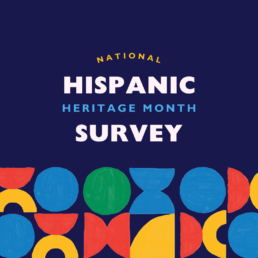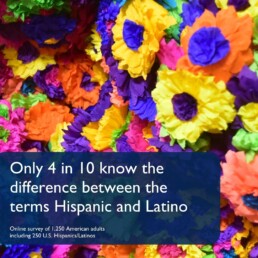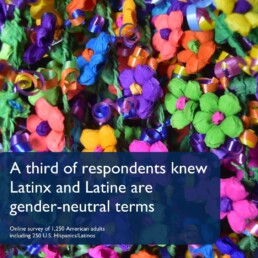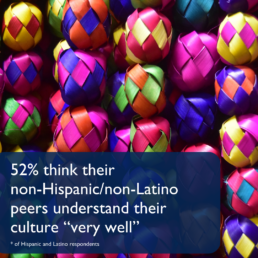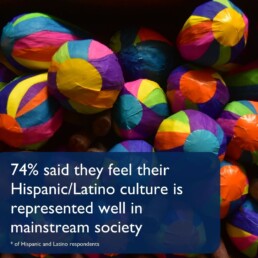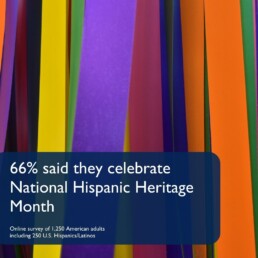Americans are split when it comes to knowing the difference between the terms Hispanic and Latino.
Out of 1,250 adults we surveyed, including 250 U.S. Hispanics/Latinos, 41% selected the correct answer:
Hispanic refers to someone whose country primarily speaks Spanish, and Latino refers to those with origins from Latin America (Mexico, South and Central America) and the Caribbean.
Two in five, in fact, believe the opposite (41%), and 11% didn’t know the difference between Hispanic and Latino.
When asked what Latinx and Latine represent, respondents had a better idea of what the terms describe.
- A third (32%) knew Latinx and Latine are gender-neutral terms
- However, 29% thought they were used to describe the younger generation
- 23% thought they were used to describe the older generation.
- Almost a fifth had no idea what Latinx and Latine represent (16%)
National Hispanic Heritage Month
Our survey also asked respondents how they view and observe Hispanic Heritage Month, with 66% saying they celebrate it.
Although a majority believe it’s important for society to learn about Hispanic heritage (85%), a similar percentage of people said they wish they knew more about Hispanic/Latino culture (81%).
Similarly, 84% said they wish they had learned more about other cultures as a child.
Hispanic and Latino respondents were also asked to reflect on their social and professional lives, revealing that:
- 52% think their non-Hispanic/non-Latino peers understand their culture “very well.”
- More positively, 74% said they feel their Hispanic/Latino culture is represented well in mainstream society.
- In the workplace, two in five said their jobs are majority Hispanic/Latino (44%), with 43% reporting most of the management/executive positions are Hispanic/Latino.
This survey of 1,250 adults, including 250 U.S. Hispanics/Latinos was conducted between September 13th to September 15th 2023 by market research company OnePoll, whose team members are members of the Market Research Society and have corporate membership to the American Association for Public Opinion Research (AAPOR) and the European Society for Opinion and Marketing Research (ESOMAR).
Photo credit: photos in carousel by Dnessa Franklin


